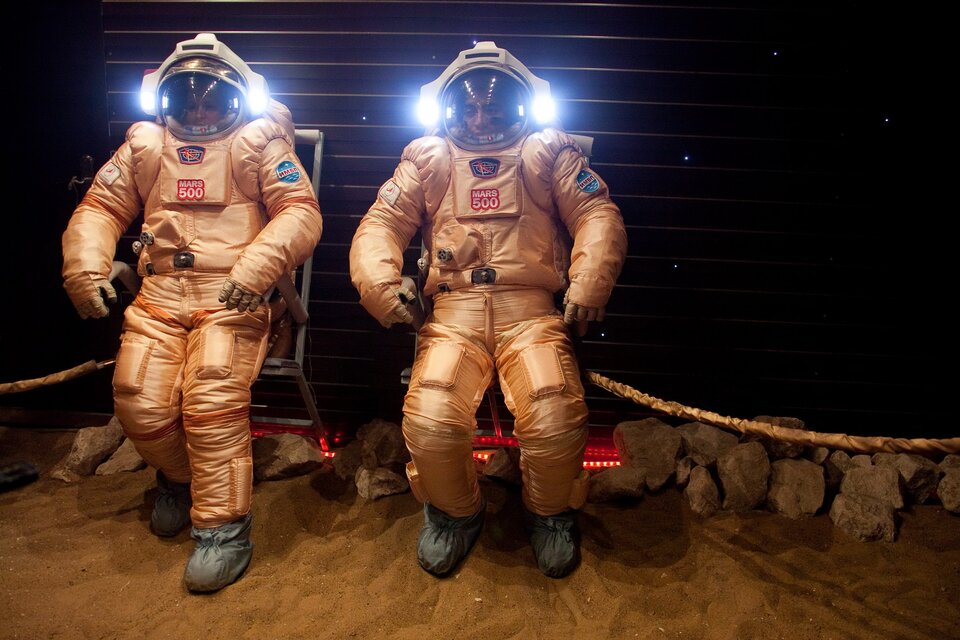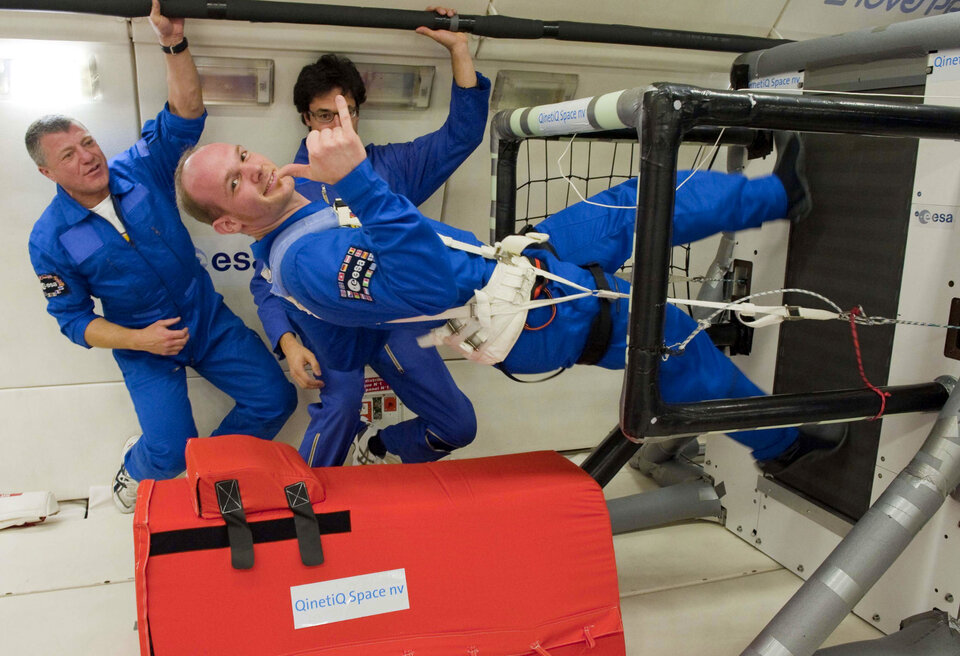Space medicine 2011 - “Announcements of Opportunity”
The objective is to propose a solution to one (or two if desired) of the tasks related to the following four topics:
Off-world basic life support

The isolation and distance of exploration missions is such that a degree of crew autonomy will be needed which at present is not required. Crew will need to manage their health during nominal and off-nominal circumstances, and although an exploration crew is likely to have a physician amongst them, this individual could be the casualty in an emergency. One emergency that must be prepared for is an event requiring cardiopulmonary resuscitation (CPR). This will be particularly challenging if this form of treatment is required during planetary exploration, for example during geological surveys of the Moon.
- Task 1. A means of performing cardiopulmonary resuscitation (CPR) on the surface of Mars or the Moon. The proposed technique should not require equipment and should consider the constraints expected during the exploration of Mars/Moon. Consider that incidences may occur within planetary habitats.
Artificial-Gravity

Time in space impairs the human physical condition through effects like fluid shifts, muscle degradation, bone loss and neurovestibular alterations. Many of these effects increase with the length of mission. Countermeasures (CM) – means to help counteract the effects of space on the human body, like for example physical exercise – must therefore be performed daily to reduce the deconditioning in an attempt to maintain 1G performance capabilities. The performance of CMs, however, requires considerable crew time, which is highly valuable and could otherwise be used for scientific research or in the future, for exploration activities. In addition to this, none of the currently used CMs are fully efficient, so the aim is to find an integrated CM method that has an effect on the entire physiological system of the human body. This aim could be achieved by creating and using artificial gravity in space.
- Task 2. Artificial-gravity countermeasure system to be used to counter or reduce the most deleterious effects of exposure to long term microgravity. This should be a ‘within vehicle’ design and NOT a rotational vehicle design.
Crew data management

Both science and operations produce considerable quantities of data which need to be transferred to the ground and utilised. This data exists as research data or operational/clinical data, but both must be accessible to the relevant staff and each must be stored in a format which allows safe and secure handling and quick and easy analysis. This process will be particularly challenging when exploration missions are undertaken due to the amount of data produced, the distances involved, the associated time delays and the potential need for fast analysis and feedback.
- Task 3. An appropriate means of crew medical operations data management during exploration missions. This should include proposals for the effective storage, transmission, receipt and analysis of data for the benefit of the mission and subsequent benefit of terrestrial medicine/science.
Functional Medicine

A great deal of medical related research and operations have been undertaken over the years since the inception of human space travel. The need to provide effective medical support for space travel and the large amount of research that occurs in support of it, leads to terrestrial healthcare benefits. Although space medicine and terrestrial medicine are in many ways distinct fields, they both exist within the same continuum. Furthermore, it is increasingly obvious that many medical conditions, be they related to space or terrestrial scenarios, cannot be viewed, diagnosed and treated in isolation. The integration of physiological, and indeed also psychological, systems within the human body, and the dynamic relationships involved are such that multiple-system diagnosis and treatment is often necessary.
- Task 4. Functional medicine for human space flight. Applicants should consider the potential medical scenarios related to certifying crew ‘fit for mission’ for publicly funded human space missions. Astronauts are valuable assets whose operational careers should not be curtailed due to health reasons. Consider how Functional Medicine can be used to optimise the health maintenance and treatment of astronauts between missions to ensure a long operational career.
Functional medicine is personalized medicine that deals with primary prevention and underlying causes instead of symptoms for serious chronic disease. It is a science-based field of health care that is grounded in the following principles:
Biochemical individuality describes the importance of individual variations in metabolic function that derive from genetic and environmental differences among individuals.
Patient-centered medicine emphasizes "patient care" rather than "disease care," following Sir William Osler’s admonition that "It is more important to know what patient has the disease than to know what disease the patient has."
Dynamic balance of internal and external factors.
Web-like interconnections of physiological factors – an abundance of research now supports the view that the human body functions as an orchestrated network of interconnected systems, rather than individual systems functioning autonomously and without effect on each other. For example, we now know that immunological dysfunctions can promote cardiovascular disease, that dietary imbalances can cause hormonal disturbances, and that environmental exposures can precipitate neurologic syndromes such as Parkinson’s disease.
Health as a positive vitality – not merely the absence of disease.
- Promotion of organ reserve as the means to enhance health span.






